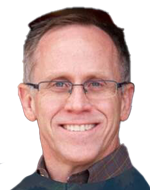DEEP DIVE SESSION // WEDNESDAY - 15 JANUARY
Downstream Space
Climate Resilience & Sustainability
With the increasing urgency of climate challenges, the need for precise, actionable insights has never been greater. This session will explore how downstream space technology and geospatial tools are empowering users to extract valuable insights from satellite remote sensing to enhance climate resilience and sustainability efforts. The discussion will focus on how geospatial technologies transform raw satellite data into actionable intelligence for decision-makers across industries. From monitoring environmental changes and managing natural resources to assessing climate risks, geospatial solutions enable users to address specific challenges related to climate resilience. By leveraging satellite imagery and analytics, stakeholders can make informed decisions in real-time, ensuring smarter responses to environmental threats. This session will feature panel discussions and case studies from experts who are applying remote sensing technologies to deliver impactful climate solutions. Attendees will gain insights into how geospatial platforms help industries—from agriculture to urban planning—unlock the full potential of satellite data to drive sustainable practices and bolster climate resilience.
Agriculture & Food Security
In the face of growing global food security challenges, the agriculture sector is increasingly turning to advanced technologies to optimize productivity and sustainability. This session will explore how geospatial technology, particularly through satellite remote sensing, is revolutionizing agriculture by providing critical insights to address the sector’s specific needs. The discussion will focus on how satellite data can be transformed into actionable intelligence that empowers farmers, policymakers, and agri-businesses to enhance crop monitoring, optimize resource allocation, and mitigate risks such as droughts or pests. By integrating satellite imagery with advanced geospatial analytics, stakeholders can make data-driven decisions to ensure greater food security and agricultural resilience in the face of climate change. The session will feature panel discussions and case studies showcasing successful applications of satellite remote sensing in agriculture, from precision farming to sustainable land management practices. Attendees will gain insights into how downstream space technology is being harnessed to improve crop yields, monitor soil health, and ensure a more secure and sustainable food system.
Insurance & Risk Management
As the insurance and risk management sectors grapple with increasing complexities, geospatial technology is emerging as a game-changer. This session will delve into how satellite remote sensing, paired with geospatial analytics, empowers insurance providers and risk managers with precise, actionable insights to make better-informed decisions and mitigate risks. The discussion will focus on how satellite imagery and geospatial tools are transforming risk assessment and disaster response. From evaluating natural disaster impacts to predicting climate risks and monitoring asset vulnerabilities, satellite data is reshaping how insurers assess and price risk, manage claims, and forecast potential hazards. By harnessing geospatial intelligence, insurers can optimize underwriting, reduce uncertainty, and improve resilience. This session will include panel discussions and case studies from industry experts who are utilizing downstream space technology to enhance risk modeling and claims management. Attendees will learn how satellite-derived geospatial insights are enabling real-time risk assessments, streamlining loss estimation, and helping businesses and communities better prepare for and recover from catastrophic events.
Speakers

Anthony D. Palizzi
Executive Director
Integrated Data, UDC

Pablo Fuentes
Co-Founder and Principal
Makepath

Trevor Moore
Managing Partner
Orbo System

Brian Collins
Executive Director
Earth Fire Alliance